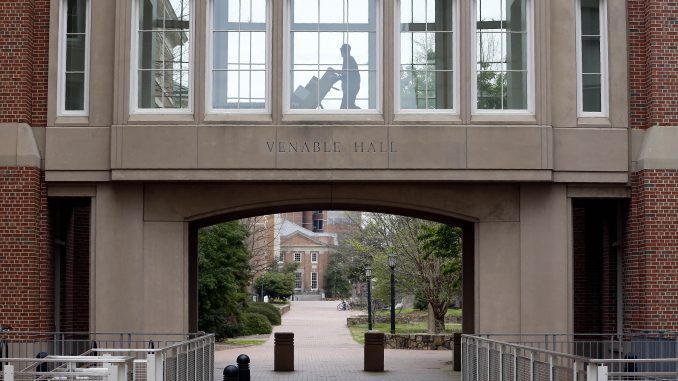
RALEIGH — Unemployment benefit requests in North Carolina surged this week due to the new coronavirus as business activity slowed and a ban on dining-in at restaurants and bars began.
The state Division of Employment Security said the number of claims in which people blamed COVID-19 for their layoffs or for reduced hours surpassed 4,700 by Wednesday morning. In North Carolina’s recent robust economy — the January jobless rate was 3.6% — the number of overall claims has been roughly 3,500 per week, said Larry Parker, a division spokesman. Similar surges are occurring in other states.
The division began offering the COVID-19 option as a claims reason in its filing system starting at noon Tuesday. Gov. Roy Cooper had just announced he would issue an executive order loosening unemployment benefit rules and closing all bars and restaurants except for takeout and delivery orders. About 80% of the people who filed said they were laid off, Parker said.
Cooper’s executive order also cited state laws that allowed him to remove the one-week waiting period to file claims and to eliminate the requirement to look for work. People can now seek benefits when working hours are only reduced due to the virus. North Carolina’s benefit trust fund sat at $3.8 billion a few weeks ago. Unemployment benefits are capped at $350 a week. The state has $3.8 billion in unemployment reserves, one of the highest in the nation, according to State Sen. Phil Berger.
North Carolina state health officials counted 63 residents testing positive for COVID-19 as of Wednesday morning, up from 40 the day before. Wake, Mecklenburg and Durham accounted for almost two-thirds of those cases, according to the Department of Health and Human Services.
The reported cases include people associated with Duke University, which announced Tuesday at least 15 people involved in an overseas travel group had tested positive. They are under quarantine in their off-campus homes and are believed to be in good health, a Duke news release said.
Also, Duke University President Vincent Price announced Wednesday night that it was postponing commencement. Price didn’t reveal a new commencement date for the Class of 2020, but said he was committed to recognizing the graduating seniors.
“Commencement will surely take place, and here on campus,” Price said in his statement, adding officials were in the early stages of exploring possible dates.
The jump in cases reflect the expected spread of the new coronavirus, as well as expanded access to testing. At least 1,850 tests at the state public health laboratory, universities and private labs have been completed statewide, the Division of Health and Human Services said.
In mainland China, more than 80,000 people have been diagnosed and more than 68,000 have so far recovered. More than 6,500 cases have been reported in the U.S. with at least 119 deaths, almost half of them in Washington state.
North Carolina’s response to COVID-19 has rippled over the last week into a wave of closings, cancellations and movement limitations.
Cooper last weekend closed K-12 public schools for at least two weeks and prohibited assemblies of more than 100 people for 30 days. Attorney General Josh Stein said on Wednesday he wasn’t aware of any arrests or charges related to those prohibitions. Local officers were asked to enforce that rule.
Stein told reporters that the state Department of Justice has received over 135 price-gouging complaints since Cooper declared a state emergency earlier this month. About half of the complaints center on groceries, Stein said, while others focus on hand sanitizer and cleaning product sales. Telemarketing and phishing scams also are increasing, he said.
“Whenever a crisis like this occurs, there are bad people who will try to exploit people’s fear, their desperation, their uncertainty, to steal money,” Stein said.
Officials in Hyde County, on the Outer Banks, announced it would prohibit new visitors on Ocracoke Island starting Thursday. It marks another setback for Ocracoke village, which is still recovering from 2019 hurricane damage. Dare County issued similar visitor limits on Tuesday.


